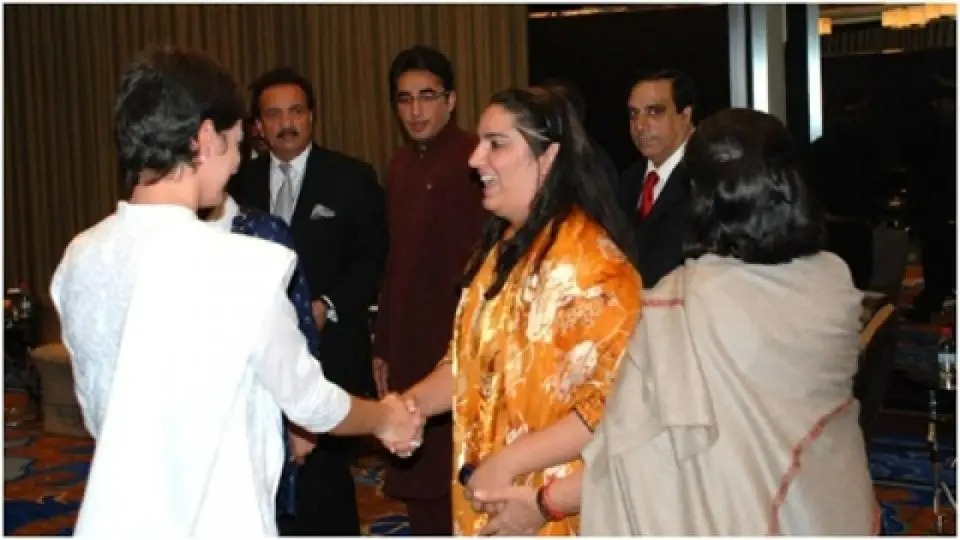In a surprising turn of events, a long-forgotten meeting from the 2008 Beijing Olympics has resurfaced, reigniting political debate in India. The meeting in question involved top leaders of the Indian National Congress and the Pakistan People’s Party (PPP), and its details are now under intense public and media scrutiny.
A Quiet Meeting Now Making Noise
During the grand opening ceremony of the 2008 Beijing Olympics – a global event that showcased China’s rising international clout – Congress leaders Sonia Gandhi, Rahul Gandhi, and Priyanka Gandhi Vadra were present in Beijing. Coincidentally, PPP chairman Bilawal Bhutto Zardari, along with his sisters Bakhtawar and Asifa, and senior leaders Jahangir Badar and Rehman Malik, were also in attendance at the invitation of the Chinese Communist Party (CPC).
Sources now confirm that a 30-minute private meeting took place between the Gandhi and Bhutto families on the sidelines of the event. Sonia Gandhi reportedly used the occasion to express condolences over the assassination of Benazir Bhutto, a moment described by PPP’s Rehman Malik as a “warm, emotional, family interaction” with no political discussions.
The MoU Mystery and China’s Role
Despite Malik’s statements, reports from the time hinted at something more significant. There were media claims about a Memorandum of Understanding (MoU) signed between the Indian National Congress and the Chinese Communist Party. While the contents of the MoU were never made public, it was widely believed to cover political cooperation and strategic dialogue. This undisclosed agreement has remained a topic of political speculation for years.
What makes the situation even more sensitive is the backdrop: this meeting took place on Chinese soil, involving two of South Asia’s most influential political dynasties, at a time when India-Pakistan relations were highly strained. China’s historical position in South Asian geopolitics adds another layer of strategic complexity to the issue.
Viral Photo Triggers Fresh Questions
Now, nearly 18 years later, a photo from that meeting has gone viral on social media, sparking fresh controversy. Critics are questioning whether this was truly just a condolence meeting, or if it involved strategic discussions under the guise of diplomacy. Many political analysts are urging the Congress to clarify its intent and the nature of the meeting – especially considering the involvement of the Chinese Communist Party as a host.
Congress’s Silence and Opposition’s Outrage
The Congress party has so far remained silent, refusing to issue an official statement on the resurfaced photograph or the nature of the meeting. This silence has only fueled the fire, giving opposition parties like the BJP fresh ammunition. They are accusing the Congress of hidden diplomacy, potentially allowing China to gain indirect influence over India-Pakistan political dynamics.
Critics argue that in the realm of international relations, “soft diplomacy” – such as symbolic meetings between political heirs- can often have deep, long-term consequences. The public is now demanding transparency, especially at a time when trust in political narratives is low.
A Political Flashback with Present-Day Implications
What was once viewed as a private, emotionally driven interaction has now become a matter of national debate. The resurfaced image has transformed into a political document – one that opposition parties are using to challenge Congress’s credibility and intent.
As India continues to navigate complex regional relationships, the significance of such meetings, even years later, cannot be underestimated. The Congress will need to address the issue openly to put an end to growing public suspicion and political attacks. Until then, the shadows of Beijing 2008 continue to linger over today’s political landscape.
